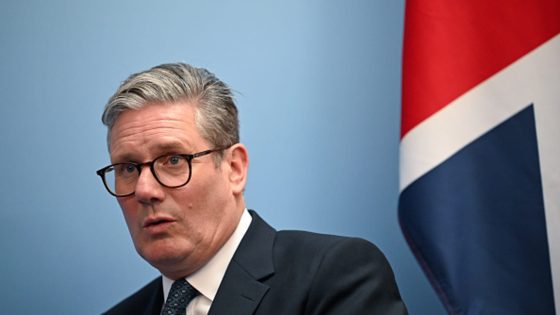LONDON â The British pound has jumped to its highest level in two-and-a-half years following a hawkish rate hold from the Bank of England, but strategists warn the upcoming U.K. budget could pose a risk to investor and consumer sentiment.
Many investors are awaiting the new Labour government’s fiscal plan at the end of October before making longer-term calls on the U.K. economy and assets, with Prime Minister Keir Starmer warning decisions lie ahead that will be “painful” for the public to shoulder.
Labour, meanwhile, kicks off its annual party conference on Monday, its first in power for 15 years, as its leadership seeks to push past a recent controversy over donations and pledge to “rebuild Britain.”
The Band of England held rates as the Fed cut them last week. Both actions were expected, but the former struck a surprisingly hawkish tone as it stressed the need for “gradual” easing, while the latter opted for a hefty 50 basis point reduction, as it emphasized the need to support the U.S. labor market.
Sterling breached $1.33 against the greenback for the first time since March 2022 on Thursday, and was trading at $1.3315 early London time Monday.

Pound/Dollar exchance rate.
The pound’s rally was tied to the BOE communication and “looks fully justified,” Chris Turner, global head of markets at ING, said in a Friday note. Higher rates are traditionally a positive for a domestic currency as the higher yield can attract more foreign capital.
“The BOE does genuinely seem to be questioning whether inflation will come down as much as elsewhere in the world … [the BOE] certainly does not seem to be in the Fed camp of signaling the ‘all-clear’ on inflation,” Turner said.
Key concerns for the U.K. central bank remain services inflation â which rose to 5.6% from 5.2% in August â and wage growth, which is also holding above 5% on an annual basis.

Sterling’s gains last week built on a longer-term trend, with analysts broadly identifying positives to the U.K. outlook from Labour’s landslide election victory in July due to factors including increased political stability, and plans to reform housing policy and strengthen ties with the European Union.
But the recent boost for the pound due to interest rate differentials could be jeopardized by the budget, due to be delivered on Oct. 30, some warn.
The fiscal plan “could be a test for GBP bulls if tax hikes erode the tentative improvement in U.K. investor confidence,” Jane Foley, head of FX strategy at Rabobank London, told CNBC by email.
Hikes to value-added tax, national insurance â a general taxation â and income tax have all been ruled out, but other tax rises, a crackdown on the ultra-wealthy and public spending cuts may be to come.
Labour has repeatedly emphasized that boosting the U.K.’s sluggish economic growth is its top priority.
U.K. retail sales growth of 1% for August helped support sterling on Friday, “but leading indicators for consumer confidence warn that consumers are starting to become fearful,” Turner said.
That in turn could have an impact on consumer spending and short-term growth.

Gabriella Dickens, G7 economist at AXA Investment Managers, also cautioned on the pound’s outlook in a note Thursday.
A 25 basis point rate cut in November would be consistent with the Bank of England continuing to move “gradually” â and beyond that, the main risk remains the budget, she said.
“This looks likely to increase pressure on the Bank to quicken the pace of the cutting cycle if fiscal policy is tightened by more than currently laid out by the previous government,” Dickens said.
“This looks likely to us, given the recent signals from the new government, including the mention of the £22 billion black hole in the public finances and the hints at potential further tax increases. If the government is more stringent on fiscal policy, we think the Bank will be forced to increase the pace of the cutting cycle to offset the hit on both households’ and businesses’ finances.”
Mixed outlook
ING strategists do expect the BOE to gain more confidence in the U.K.’s inflation trajectory later in the year, which could see its rate reductions accelerate after the November cut that markets have priced in.
“That may take some time, however, and in the meantime, sterling can continue to do well,” Turner said, potentially leading to a push to the $1.35 area.
While Bank of England Governor Andrew Bailey has denied that public sector pay rises are a major driver of inflation, policymakers will be monitoring Labour’s awarding of “bumper” increases, Huw van Steenis, vice chair of Oliver Wyman, told CNBC’s “Squawk Box Europe” on Friday.
Millions of public sector workers including teachers and doctors are set to receive above-inflation pay rises from the U.K.’s new Labour government.
“One of the things that comes from U.K. banks is they were hoping to hold costs flat next year, and they’re getting a bit nervous they’re going to have to give it more of a bump,” he said.
He added: “If you read the [BOE] statement, it’s clear they’re digging in, they want to have gradualism underlined and in bold.”
Source Agencies



